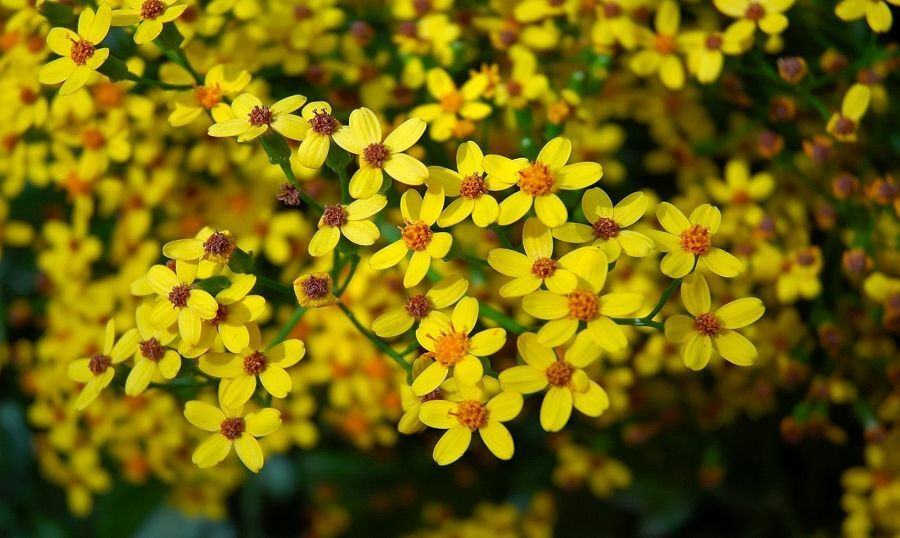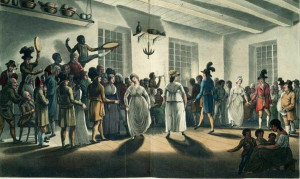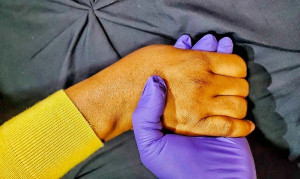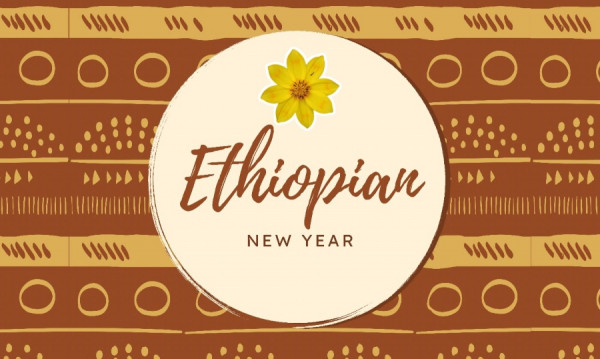“Ethiopian New Year, Enkutatash, is my favourite holiday for a number of reasons. One, my birthday is just two days before the holiday. Second, the pleasant atmosphere it impregnates and the spirit of hope it spreads,” he says. “Our New Year is not only the end of one year and the beginning of another but also the end of the rainy season and the beginning of a bright, sunny season. Flowers flourish, especially the seasonal flower, Adey Abeba; it covers the entire land. School starts, the market will be lively, everybody will have new clothes, and people clean their houses and surroundings to receive the New Year with open arms,” he adds.
Ethiopia is one of the world’s oldest countries in Africa, with a unique calendar that’s seven to eight years behind the Gregorian calendar. The Ethiopian calendar has 12 months of 30 days, an additional 1 month that has 5 days, and a leap day every four years. Accordingly, Ethiopian New Year falls on September 11 or 12 on the leap year.
For Ethiopians, Enkutatash is the time for family reunion. It’s also a time for relaxation, excitement, forgiveness and new hope. That’s why many Ethiopians in the diaspora still have a psychological and emotional connection to this special holiday. Some even travel home just for the celebration.
Living in Toronto, Birhanu eagerly awaits this time of happiness and refreshment every year. He tries his best to recreate the same feeling he had in Ethiopia during the holiday season.
“Even though I’m here in Canada celebrating the holiday in a different climate, I still have the image of a bright season in my mind. I feel refreshed every time I celebrate the Ethiopian New Year.”
He also underlines the importance of passing on this valuable culture to the younger generations. “Toronto is a multicultural city, and everybody is encouraged to showcase and practice their culture. When you have children, you should raise them with knowledge about their cultural origin. Both of my children were born here. They love Canada. They are also well aware of their country of origin. They go to an Ethiopian church, they wear Ethiopian traditional clothes, they eat Ethiopian food, and they speak the Ethiopian language. I made sure for that to happen so they won’t face an identity crisis in the future."
{gallery}Ethiopian New Year{/gallery}
In the last two decades, the Ethiopian Community Association in the Greater Toronto Area has been commemorating the day with a lively event at Christie Pits Park. The event normally occurs on either the last Saturday before the New Year or the first Saturday after the New Year. Honoured by the presence of religious leaders and Canadian government representatives, the event is comprised of different activities such as music concerts, cultural food and drinks, and traditional attire among others. It is one of the most important events that Ethiopians in Canada look forward to attending. Being media personnel himself, Teklemichael has been promoting and documenting the grand event for years.
“We are very enthusiastic about this day. Nobody wants to miss it. The kids and the youth especially enjoy it. They play and have fun. Eritreans and others also join us to enjoy the event.” he explains.
This year, COVID-19 pandemic has stolen that joy and excitement from the Ethiopian diaspora in Toronto. Though they cannot have such a grand physical event, the diaspora is still planning a smaller scale celebration for New Year’s Eve. The girls will sing Abebayehosh as they go to Habesha shops and restaurants dressed up in traditional outfits with their masks on. In return, they will receive money to be donated to a charity cause in Ethiopia.
“Both of my daughters are going to take part in the song. They’re very excited about it. They’ve been practicing the Abebayehosh lyrics for days, just like the girls I knew in childhood,” says Teklemichael proudly.
He might not have an extravagant family gathering; he might not draw his favourite New Year greeting card as he did as a child. No chibo, no Adey Abeba. However, Birhanu will continue to still celebrate the day in his own small circle as he tries to recreate the festive New Year mood he experienced as a child.
“At home, we will eat traditional food – injera, difo dabo, doro wat, and celebrate with a coffee ceremony as usual. We may spread grass on the floor and include small yellow flowers to remind us of Adey Abeba. Thanks to technology now, I can call my family in Ethiopia and refresh my memory if necessary,” he explains.
However, he can’t hide what he misses. “It is not easy to set the holiday mood this year. We will try to enjoy the day safely, with a very small gathering and festivity, but with great caution and respect for social distancing. Most importantly, we’re looking forward to better days to come.”
Feleseta Kassaye Woldtsadique is a seasoned communications professional in Canada with a passion for storytelling. Having a literature, media and communications background, she has worked for several non-profit organizations advocating for change for women, children, youth, environment and health policies across several UN Agencies.

 By Feleseta Kassaye Woldtsadiqu
By Feleseta Kassaye Woldtsadiqu 






